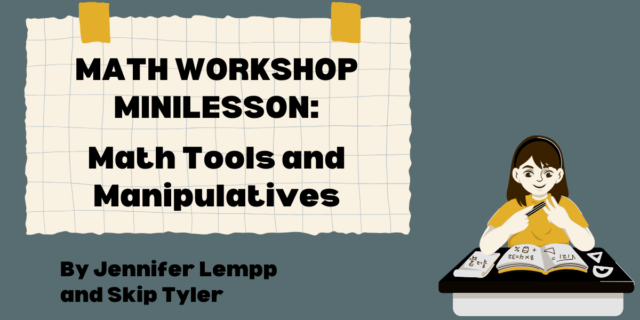
Balanced assessment views assessment as a scrapbook rather than a snapshot. The scrapbook can include the things our students say, what they do in class, how they perform on formative and summative assessments, and how comfortable or uncomfortable they appear to be with concepts and skills.
3 Key Elements of a Balanced Assessment System in Math Workshop
A balanced assessment system in math workshop is comprised of the following elements:
1. Preassessment: The goal of preassessment is to find out what students know and can do at the beginning of the unit.
Questions to consider:
- What are the main ideas of the upcoming unit?
- What prerequisite skills will students need to be successful?
- How will you assess students’ prior knowledge of those prerequisite skills?
- How will you use the preassessment data to inform instruction?
2. Formative Assessments: Throughout the unit of study, formative assessments help you shape students’ instruction.
Questions to consider:
- What are the main ideas of the unit of study? How does students’ current work relate to those ideas?
- How can you formatively assess students’ understanding of the day’s learning targets?
- How will you use the data to inform instruction?
3. Summative Assessments: Summative Assessments are evaluative assessments that reveal what students understand or can do and what they don’t yet understand or are unable to do at the end of a unit of study. After students complete a summative assessment, give them a chance to reflect on the assessment results and to make a plan to address where they want to improve.
Questions to consider:
- What are the big ideas or priority standards for the unit of study?
- How will you assess students’ knowledge of those ideas or priority standards?
- How will you use the results to inform your conferences, workstations, interventions, and extensions?
Assessment is the bedrock of good teaching. By utilizing a variety of assessments, we get a multidimensional mathematical profile of each student. We need to know the whole student as a learner and as a mathematician, therefore we need to assess not only the content but also the students’ interests, attitudes, likes and dislikes, and feelings about themselves as mathematicians. Students should understand themselves as learners of mathematics and as teachers, we should provide students with opportunities to reflect on their journey as growing mathematicians.
This piece has been adapted from A Teacher’s Guide to Math Workshop (2023) by Dr. Nicki Newton, Dr. Alison J. Mello, and Janet D. Nuzzie.



